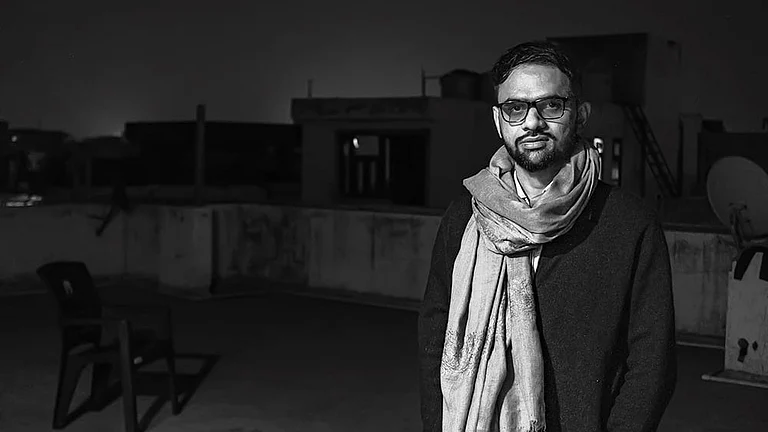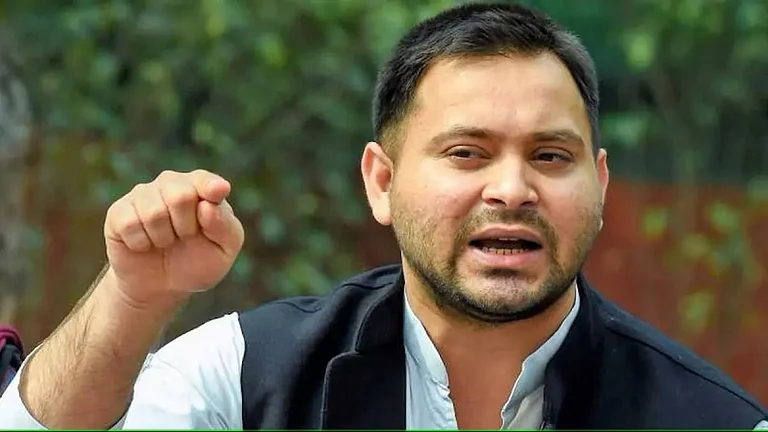The Central Bureau of Investigation (CBI) arrested Aam Aadmi Party (AAP) national convenor and Delhi Chief Minister Arvind Kejriwal on Wednesday after producing him in the Rouse Avenue Court in connection with the alleged excise policy 'scam'.
The central probe agency sought Kejriwal's custody saying that it would like his custody to interrogate him and formally arrest him, according to reports. As per the latest update, Delhi's Rouse Avenue has remanded the Chief Minister and AAP leader to a three-day custody with the CBI.
After CBI on Tuesday examined Arvind Kejriwal in Tihar Jail and recorded his statement related to the excise policy case, AAP claimed that BJP has hatched a conspiracy with probe agency's officers to frame the chief minister in a "fake case".
Meanwhile, Delhi CM Arvind Kejriwal was brought out of the courtroom for tea and biscuits after his sugar level dropped on Wednesday. He was taken to the Ahlmad (record) room.
AAP's allegation came ahead of the Supreme Court's hearing on Wednesday of Kejriwal's petition against the Delhi High Court order putting an interim stay on bail given to him by a trial court in the money laundering case linked to liquor excise policy.
The Supreme Court allowed Arvind Kejriwal to withdraw his plea challenging June 21 order granting interim stay on trial court’s order by which he was granted regular bail.
A vacation bench of Justices Manoj Misra and SVN Bhatti, which allowed Kejriwal to withdraw his plea, was told by the AAP leader's counsel senior advocate Abhishek Singhvi that since the high court has passed a detailed order on June 25, he would like to file a substantial appeal. Singhvi informed the bench that new developments were taking place every day and Kejriwal has now been arrested by the CBI.
CBI 'Arrest' Planned? AAP Claims BJP Hatched Conspiracy
AAP leader Sanjay Singh alleged on Tuesday that the BJP has hatched a conspiracy with CBI officers to frame Delhi Chief Minister Arvind Kejriwal in a "fake case". In a video message on X, Singh wondered how would one get justice when such things are happening.
"We have learnt from reliable sources that the BJP-led Centre has hatched a conspiracy with CBI officers at a time when there is a huge possibility of Kejriwal getting bail from the Supreme Court. They have planned to frame him in a fake case by the CBI and get him arrested.
The entire country is watching the atrocities of the BJP. How will one get justice in such circumstances? People will stand up against this," the Rajya Sabha MP of AAP said.
Arvind Kejriwal's Arrest | Timeline Of Key Events
Arvind Kejriwal was arrested by the Enforcement Directorate (ED) in connection with its money laundering probe linked to the alleged excise or liquor policy scam on March 21. Arvind Kejriwal was subsequently sent to judicial custody and was lodged in Delhi's Tihar jail for the same.
On May 10, the Supreme Court granted interim bail to Kejriwal till June 1 to campaign in the Lok Sabha elections, saying he will have to surrender and go back to jail on June 2.
On June 20, the trial court granted regular bail to Kejriwal.
June 21: The ED moves the high court challenging the trial court's bail order. The high court issues a notice on the agency's plea, suspends the bail order until pronouncement on the issue of stay.
June 25: The high court stays the bail granted to Kejriwal by the trial court in the money-laundering case.
ALSO READ | Setback To Kejriwal As SC Posts Bail Hearing To June 26, Top Court Flags 'Unusual' HC Order
Allegations are that Delhi government's excise policy for 2021-22 to grant licences to liquor traders allowed cartelisation and favoured certain dealers who had allegedly paid bribes for it, a charge repeatedly refuted by AAP.





















.png?w=200&auto=format%2Ccompress&fit=max)




